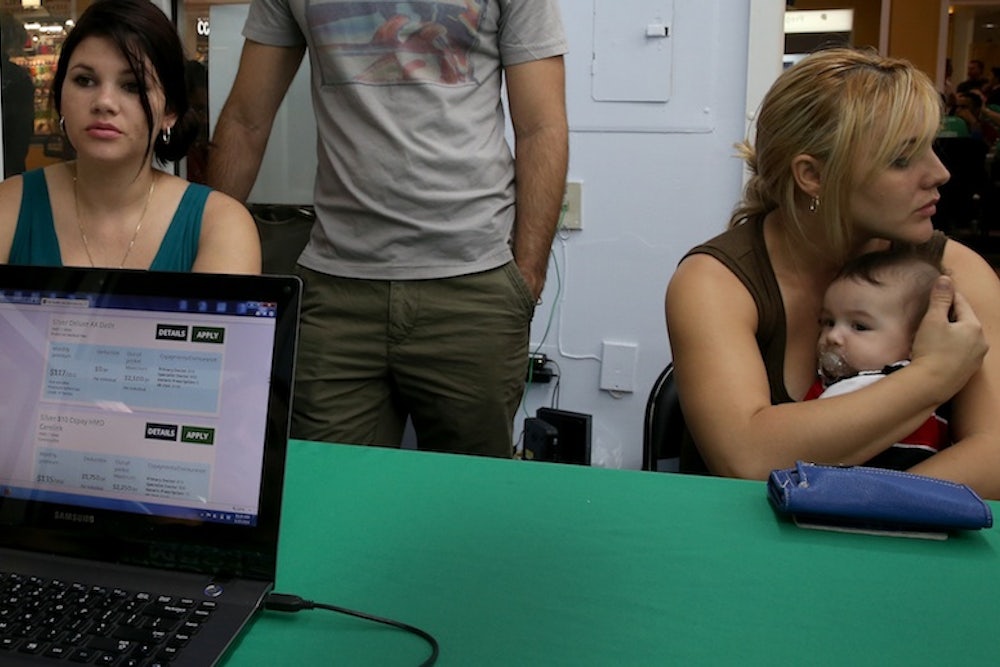
Obamacare is reducing the number of Americans without health insurance. And while nobody can say for sure exactly how many people are getting coverage, Gallup just provided a pretty big clue.
According to the organization, the proportion of adults without coverage last month fell to 13.4 percent. That's lower than it was last year. That's lower than it was when the Affordable Care Act became law—and when President Obama took office.
In fact, that's lower than it's ever been since the beginning of 2008, before the economic crisis, which is when Gallup started taking regular monthly polls on this question.
As always, you shouldn't take the specific figure too seriously. Polling on insurance status is really, really difficult. The most definitive, reliable information comes from government surveys and academic studies, the kind that won't be available for many months. The real rate of uninsurance among adults could be higher or lower. So could the magnitude of the change.
But Republicans and other critics of the health care law keep saying the law isn't having much impact on the number of uninsured Americans. A few even suggest it's having no impact at all. These arguments are just not credible anymore.
At this point, the trend in the Gallup polling clearly isn't a blip. It points in the same direction as previous surveys, from the Rand Corporation and the Urban Institute. And it's consistent with evidence about the raw number of people who have signed up for insurance through the new marketplaces—and, yes, who have paid their premiums.
"The evidence is mounting," says Jonathan Gruber, economist at MIT and one of the health law's architects. "What is nice about these results is that the Gallup poll is somewhat noisy, but this large and consistent decline is beyond any of the noise shown in earlier years. I think it is impossible to look at this and conclude that the uninsurance rate isn't declining in the U.S. It's hard to say by how much, but the direction is clear."
Obamacare's critics would point out that expanding insurance has its costs, from higher taxes to reduced spending on Medicare to new regulations that forced some people to give up their old insurance. All of that is true.
And, just to be clear, reducing the number of uninsured Americans is not a goal in itself. The point of helping people get health insurance is to protect them from crippling medical bills, stabilize their finances, and give them access to health care when they need it. Raw numbers on coverage are just one indicator of progress towards that goal. But they're a pretty important one.
